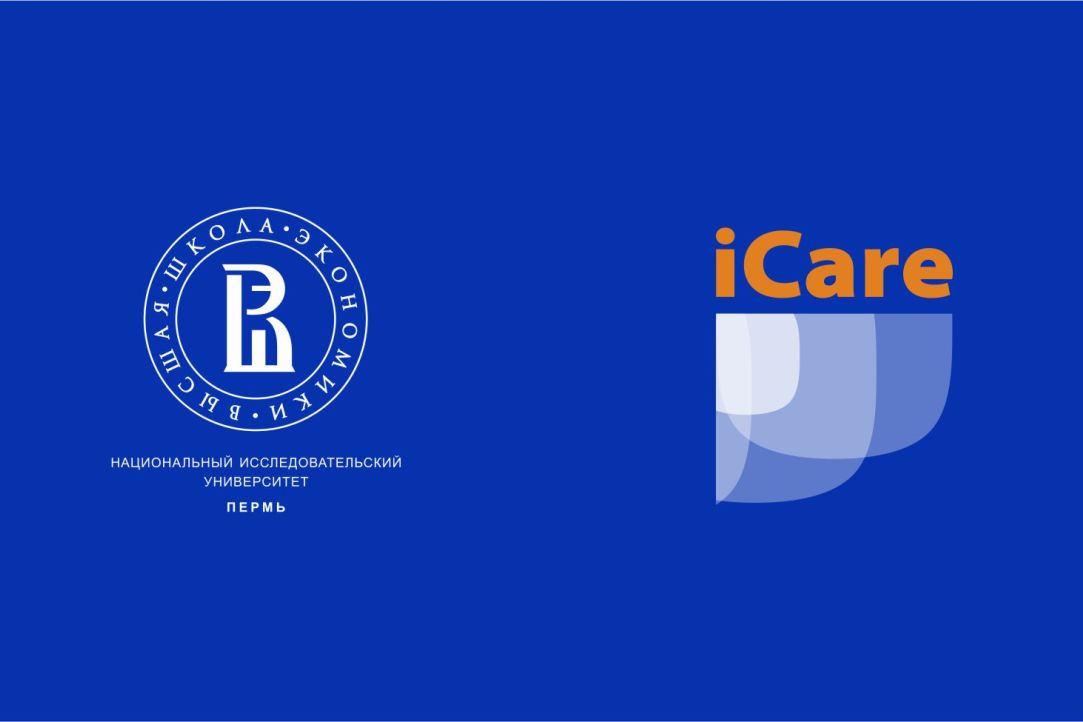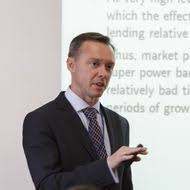From Shocks and Crises to Inequality, the Environment and Coronavirus: HSE University in Perm to Host 8th iCare Conference

On September 21, 2020, the HSE University - Perm will hold its eighth iCare — International Conference on Applied Research in Economics (and Finance and Management). This year, the event will be held online for the first time, and participants will not only be able to give presentations, but will also have the opportunity to talk in informal ‘virtual rooms’.
The conference will take place over the course of a single day with only one 45-min keynote talk, unlike in previous years. The number of sections has been reduced to five, each of them lasting no more than 60 minutes. ‘This is what the new approach to “virtual reality” in academic life is dictating – from teaching to meetings to conferences,’ said Professor Dmitry Vinogradov, Chair of iCare Programme Committee.
Despite having such a challenging schedule, the organizers have included opportunities for participants to interact in ‘virtual rooms’ during breaks, and participants will be able to talk with speakers in a chat.
The iCare conference aims to bring together people who study common topics and implement similar research approaches. The topics on the agenda are determined by the applications that have been accepted.
Dmitry Vinogradov, Professor, Chair of iCare Programme Committee

Usually, only half of the applications pass the selection stage. This is a painful process, since we often have to make negative decisions on the papers that are very well written but are ‘lonely’ in terms of their topic and/or methods. For example, the topic of cryptocurrencies has been of great interest during the past two years, and our conferences organized a corresponding section; this year, naturally, the wave of interest shifted towards the COVID-19 pandemic. Nevertheless, we decided not to organize a special ‘coronavirus’ section but instead to offer sections in more traditional fields of applied research, where, together with other aspects, research on COVID-19 could also be presented. The reason is simple: we are a conference in applied economics, finance and management, and these are our fields of interest.
For example, the programme for the section on public expectations and macroeconomic shocks includes papers on public support measures that governments adopted during the COVID-19 pandemic and their impact on people’s attitudes and expectations, as well as others on the reaction of stock markets to the evolving pandemic.
The conference will also include sections on consumer behaviour, poverty and inequality, education and social interaction, as well as on the environment and the economy.
This year’s keynote address will be delivered by Michael Koetter, Professor of Financial Economics at Otto von Guericke University Magdeburg and head of the Financial Markets department at Halle Institute for Economic Research (IWH). Professor Koetter has published in top economics and finance journals, such as the Review of Financial Studies, Review of Economics and Statistics, Journal of Monetary Economics, and Review of Finance. He is the editor of Economics of Transition and an associate editor of the Journal of Financial Stability. Michael Koetter’s presentation will be dedicated to the lessons taught by the recent financial crisis: what we have learnt, and what we have not. In the context of the new global catastrophe, the COVID-19 pandemic, this is an opportunity to take a critical view of the previous catastrophe in order to understand and forecast the relatively long-term implications of such a shock.
‘Despite the fact that the new crisis was caused by a biological reason, the economic reaction – from decreasing production to massive public borrowing and central bank intervention – is developing according to its own laws rather than biological ones. These laws form the core of research interests at our conference,’ Dmitry Vinogradov summarized.
Those who wish to participate in the conference should register.
Dmitri Vinogradov
See also:
Pivot to the East: A Comprehensive Study of the Cultural and Civilisational Centres of the Non-Western World is the Top Priority
China and the Chinese world, South Asia, Southeast Asia, the Arab countries, Iran, Turkey, Central Asia and Africa are gaining new significance in Russia’s foreign policy. However, we do not know enough about the Eastern countries. It is necessary to change the priorities in education, starting from grammar school. Prospects for the development of domestic Oriental studies in the context of the new stage in the development of the system of international relations were discussed at a round table at HSE University.
‘I Admire HSE Students’ Eagerness to Learn, to Discuss, to Broaden Their Perspectives’
Robert Romanowski was a ‘Digital Professor’ at HSE University in November 2021. In his interview for the HSE News Service, he talked about the specifics of online teaching, his course on Strategic Branding, and the skills that are essential for marketing professionals today.
Russia and Africa: Time to Expand Cooperation
There is major potential for economic and humanitarian cooperation between Russia and African countries. Particularly, Russian organisations and universities can help transfer competencies and knowledge in the fields of agriculture, energy, industrial production, environmental management, climate change, and public administration. Experts and representatives of African embassies in Russia discussed these issues at the round table ‘Russia-Africa Sharing Knowledge’ hosted by HSE University.
The Brain in Space: Investigating the Effects of Long Spaceflights on Space Travellers
As part of an international project conducted with the participation of Roscosmos and the European Space Agency, a team of researchers used differential tractography to analyse dMRI scans ofcosmonauts’ brains and found significant changes in brain connectivity, with some of the changes persisting after seven months back on Earth. The paper is published in Frontiers in Neural Circuits.
HSE University-Perm and the Training Centre of the Uzbek Ministry of Finance Sign Cooperation Agreement
HSE University in Perm has become the first academic partner of the Training Centre under the Ministry of Finance of the Republic of Uzbekistan. The parties have signed a cooperation agreement in education and research.
The Results of the International Conference on Applied Research in Economics iCare-2021
Within the framework of the IX International Conference on Applied Research in Economics (iCare), topical issues of behavioral economics, finance, banking, labor and education economics, and environmental economics were discussed. The conference was held online and brought together researchers from Russia, India, USA, Germany and other countries. We summarize and publish the recordings of the reports.
HSE University Strengthens Ties with Netherlands in Agricultural Research and Education
On November 9, 2021, HSE University signed a memorandum of understanding with Wageningen University & Research, a major university in the Netherlands and one of the leading agricultural research institutes in the world. Participants of the signing ceremony included HSE University Rector Nikita Anisimov, President of the Wageningen University & Research Executive Board Professor Louise Fresco, and Dutch Ambassador to Russia Gilles Beschoor Plug.
The Majority of Russians Do Not Support Microchip Implants
The majority of Russians would not agree to being fitted with microchip implants for any purposes—medical or otherwise. A joint study conducted by HSE University’s International Laboratory for Applied Network Research and Aventica found that respondents believe the risks of personal data leaks and misuse to be too high.
‘We Can Now Say That the Finance Conference Is Global’
The 10th International Moscow Finance Conference, organized by HSE ICEF, took place on October 29–30 online. Vladimir Sokolov, Head of the International Laboratory of Financial Economics, which hosted the conference, talks about the participants, the key presentation topics and how they will impact the global economy.
HSE University Scholars Study Green Transition Risks and Greenhouse Gas Emission Regulation
The UN Climate Change Conference is taking place from October 31 to November 12 in Glasgow. The conference focuses on preventive measures against the catastrophic and irreversible consequences of rising average global air temperatures. Igor Makarov, Head of the HSE Laboratory for Economics of Climate Change, will be taking part in the Glasgow conference. In the following interview, he speaks about the pressing problems Russia and the world are facing, and the research HSE scholars are doing on climate change.


